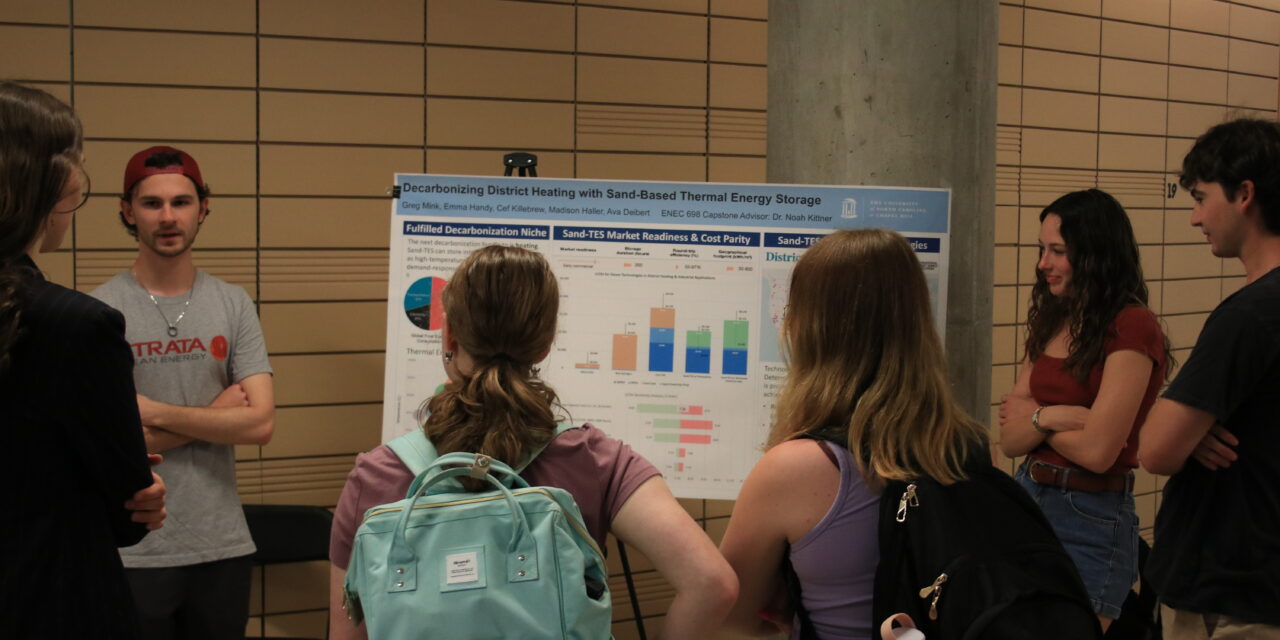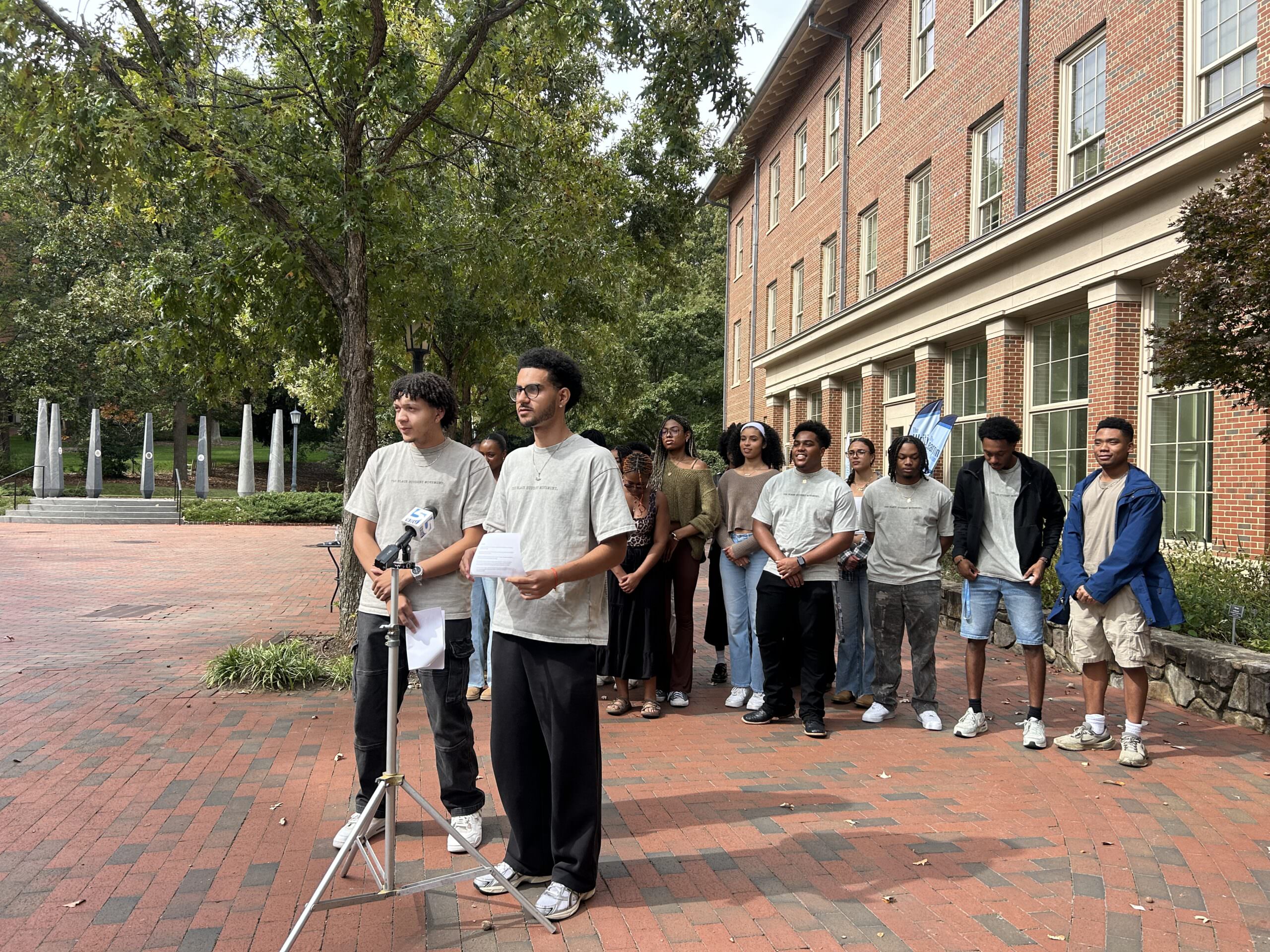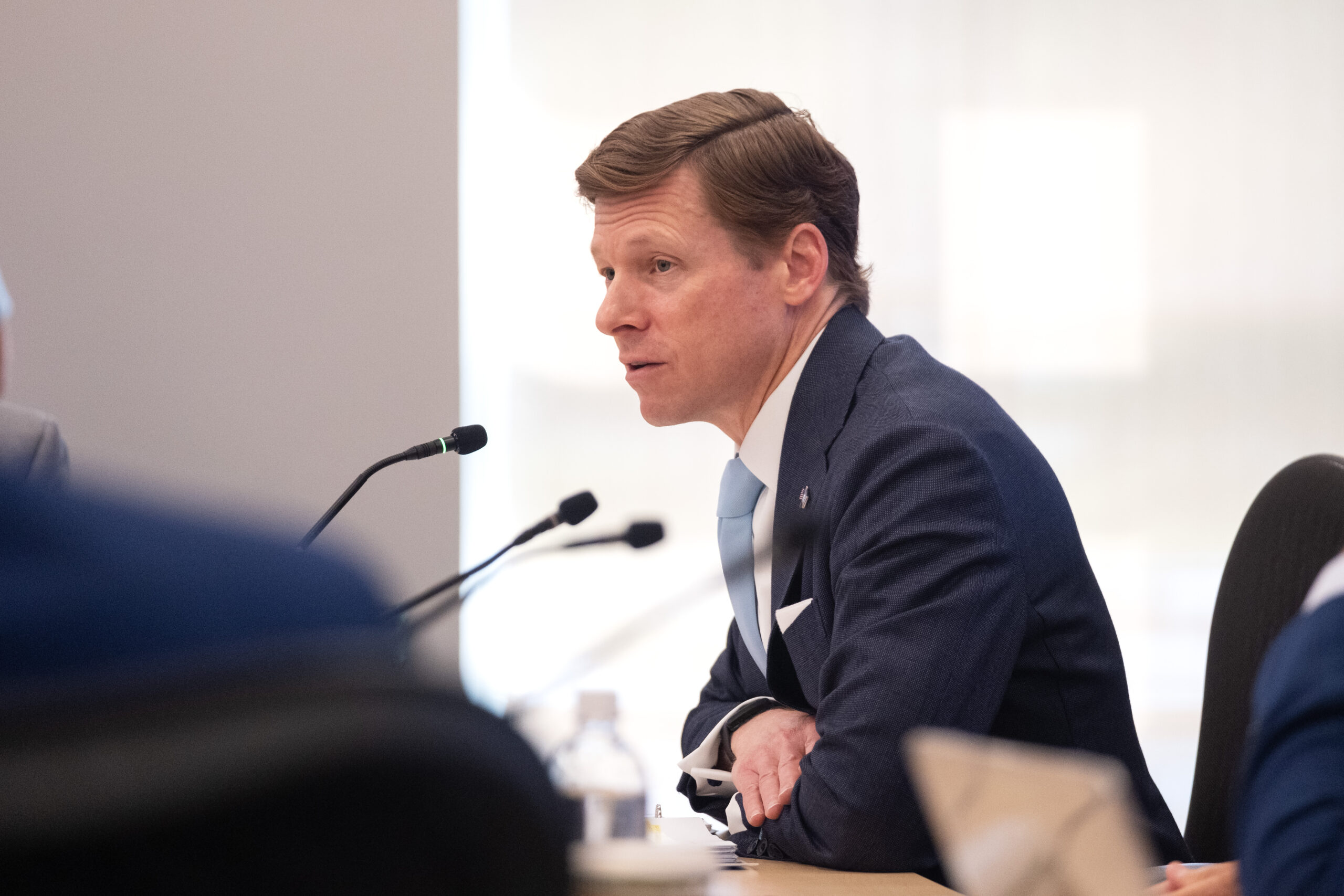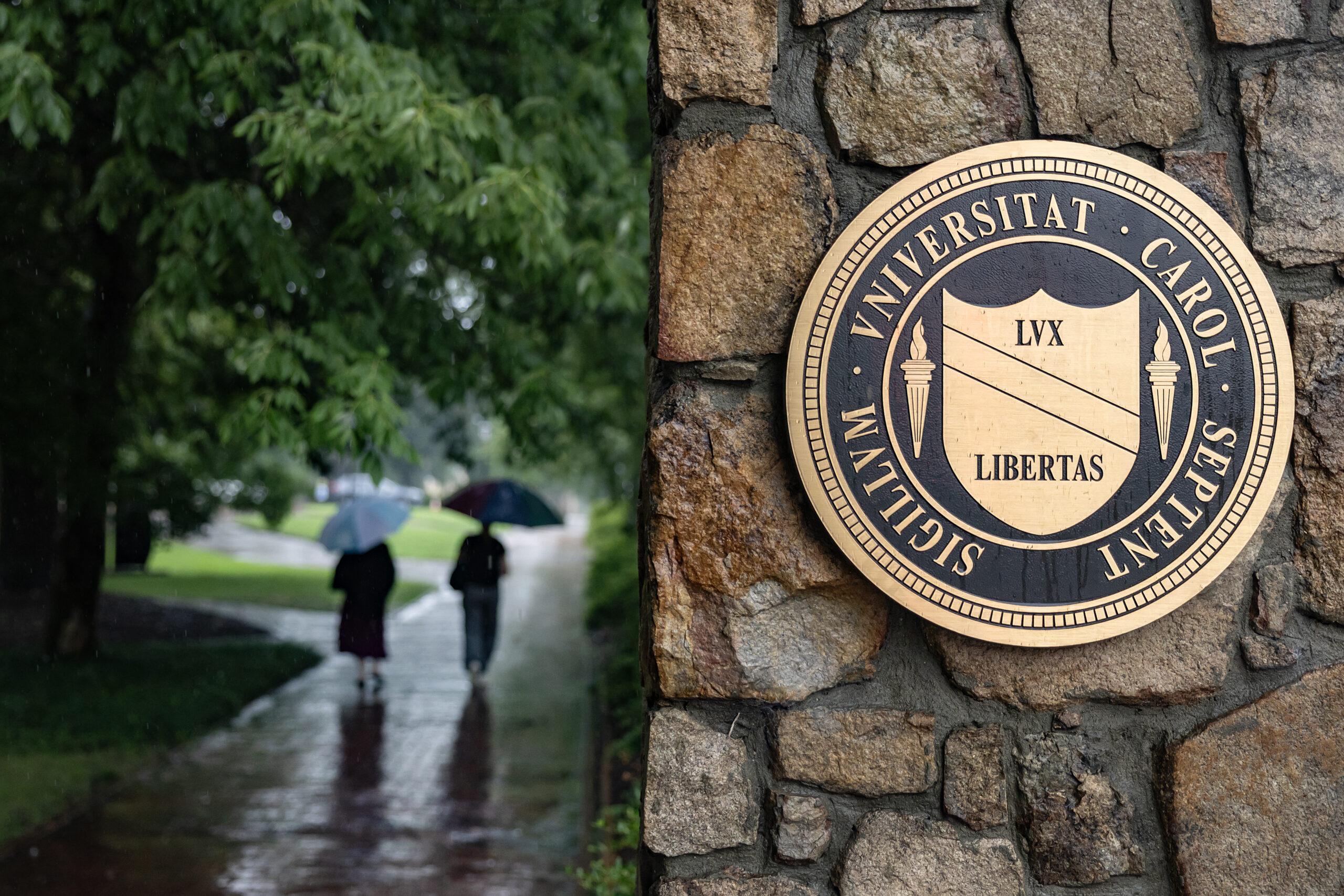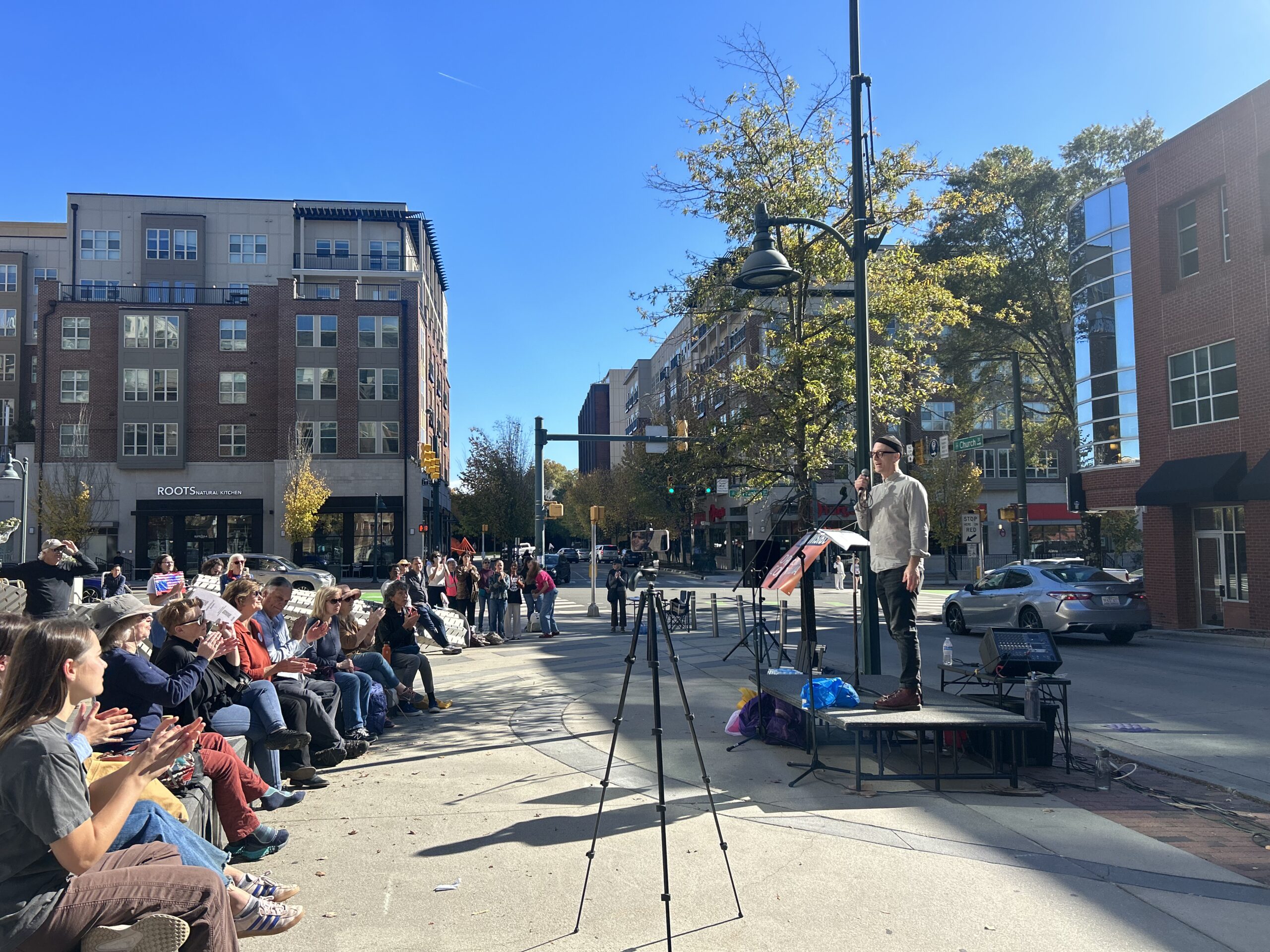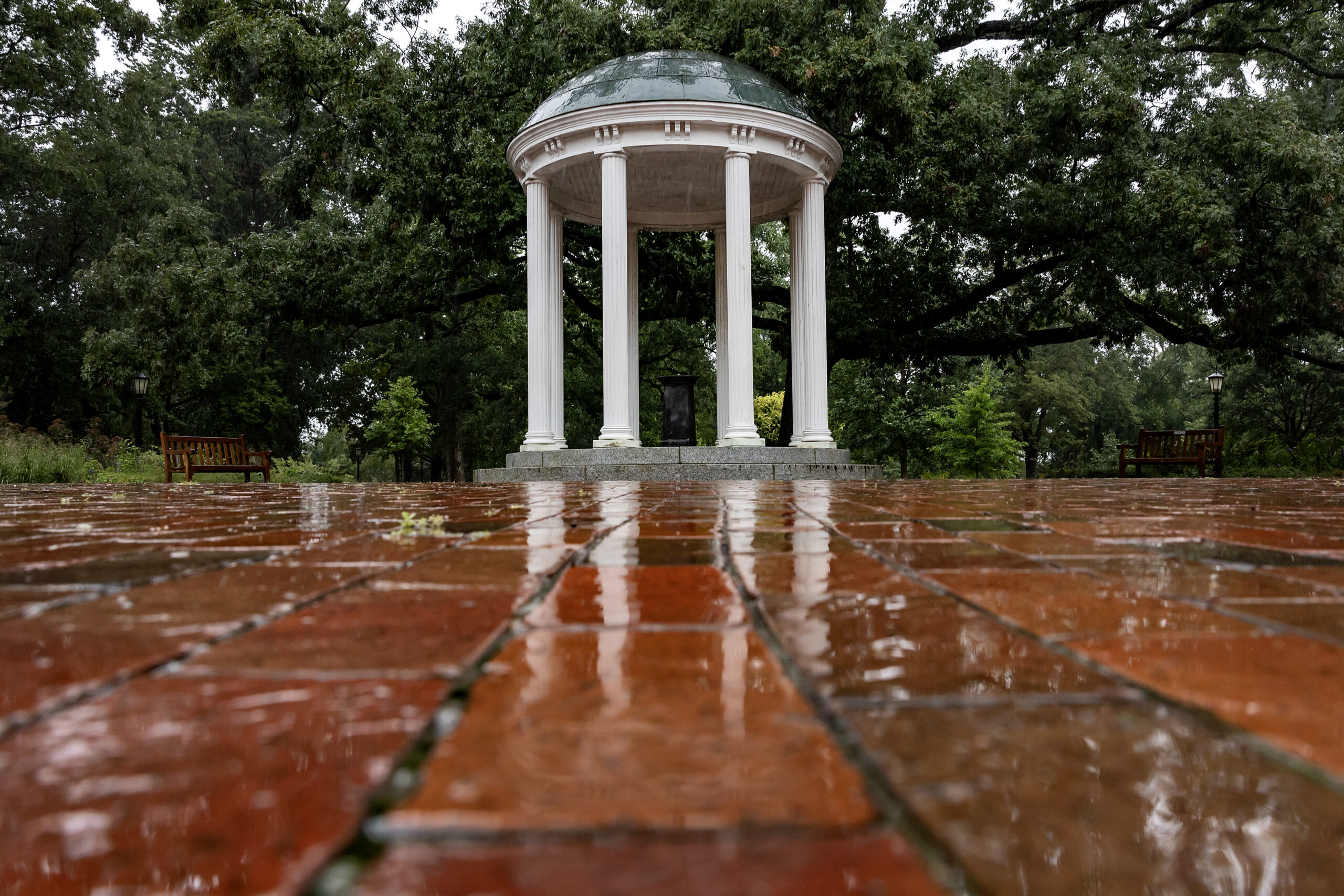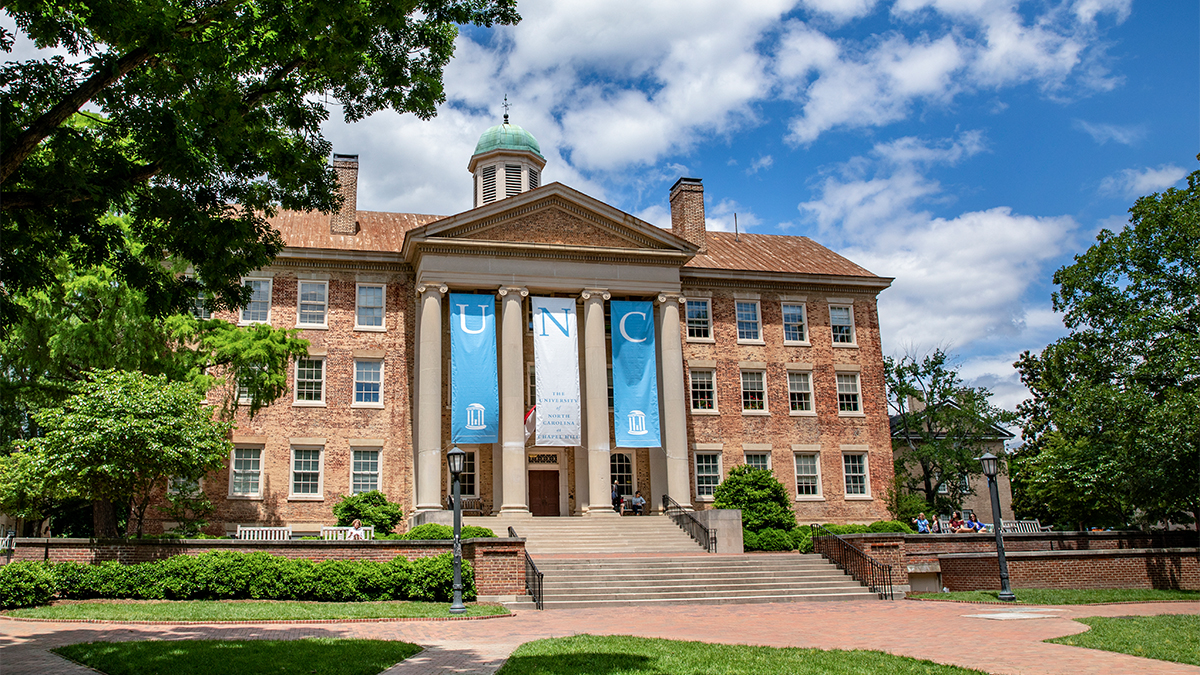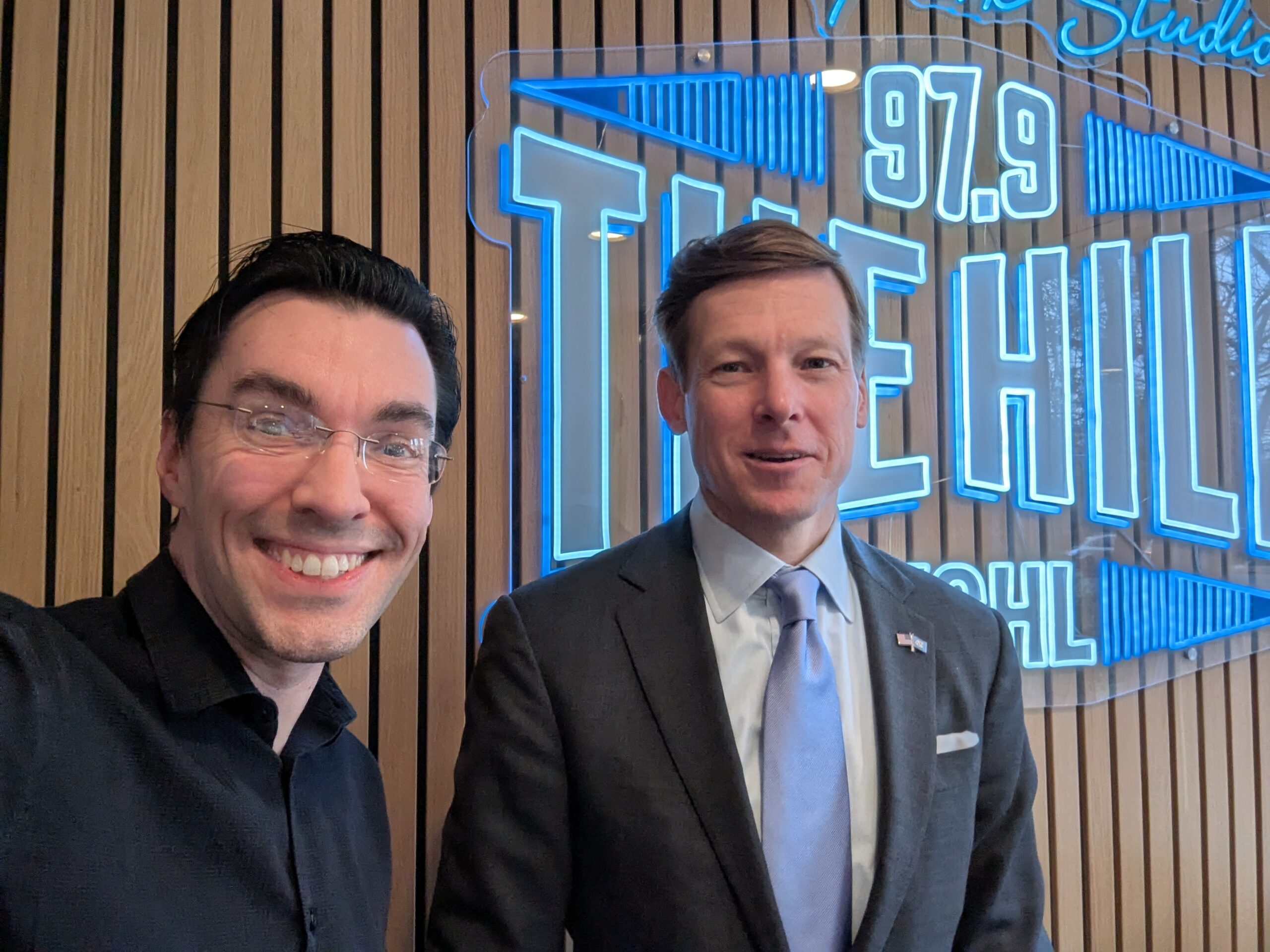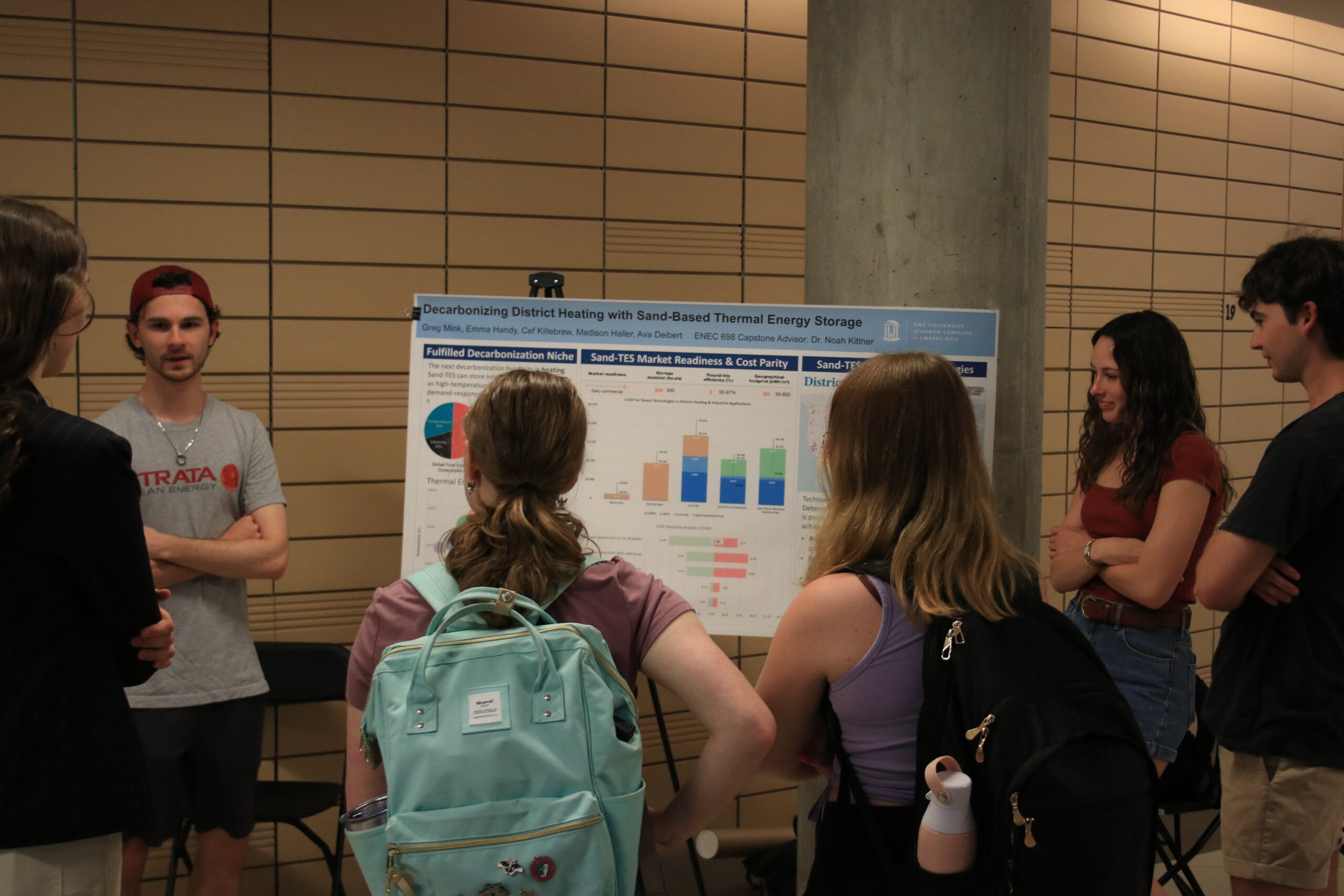UNC’s annual Climate Change Symposium is back after a five year hiatus. Previously hosted by a committee of faculty, this year marked the first time student organizations led the event, which works to encourage collaboration and dialogue towards more sustainable solutions to the climate crisis.
About a hundred students, faculty, and community members gathered at Dey Hall on UNC’s campus last week to hear from leading climate researchers in North Carolina. The dean for UNC’s College of Arts and Sciences Jim White opened the event by describing the climate issue as an ethical one.
“Until one generation is willing to sacrifice for the next generation, we’re never going to solve this problem,” White said. “My generation didn’t do it. I will admit that. I’m sorry I’m passing this on to the students here in the audience. Don’t make the same mistake. This is an intergenerational issue, climate change. And until we change our frame of time, we’re never going to be able to deal with this, and we’ll always put the next generation at risk.”
The cross-campus faculty group, Carolina Climate Scientists Committee, originally hosted the symposium for a decade until 2020. This year, current student groups wanted to bring it back to life, said UNC PhD student and Climate Crisis Committee Co-Chair Maya Powell, expressing how climate activism on campus stems from passion, but also necessity.
“UNC boasts at being one of the top five public universities, right? And we’re always saying how great UNC is,” Powell said. “And I think that in terms of a lot of climate action, that’s really driven by students and it’s not very much at the institutional level. And so I think there needs to be a crossover of both, right?”
Monday’s event highlighted climate research from faculty and students across universities, current climate policy change efforts, and a panel focusing on the economics of climate change. Hosted by UNC’s Student Engagement, Empowerment, and Development (SEED) program and the Climate Crisis Committee, this year’s event also featured a poster and student organization tabling session, which Powell said brought a more student-focused aspect to the event compared to in past years.
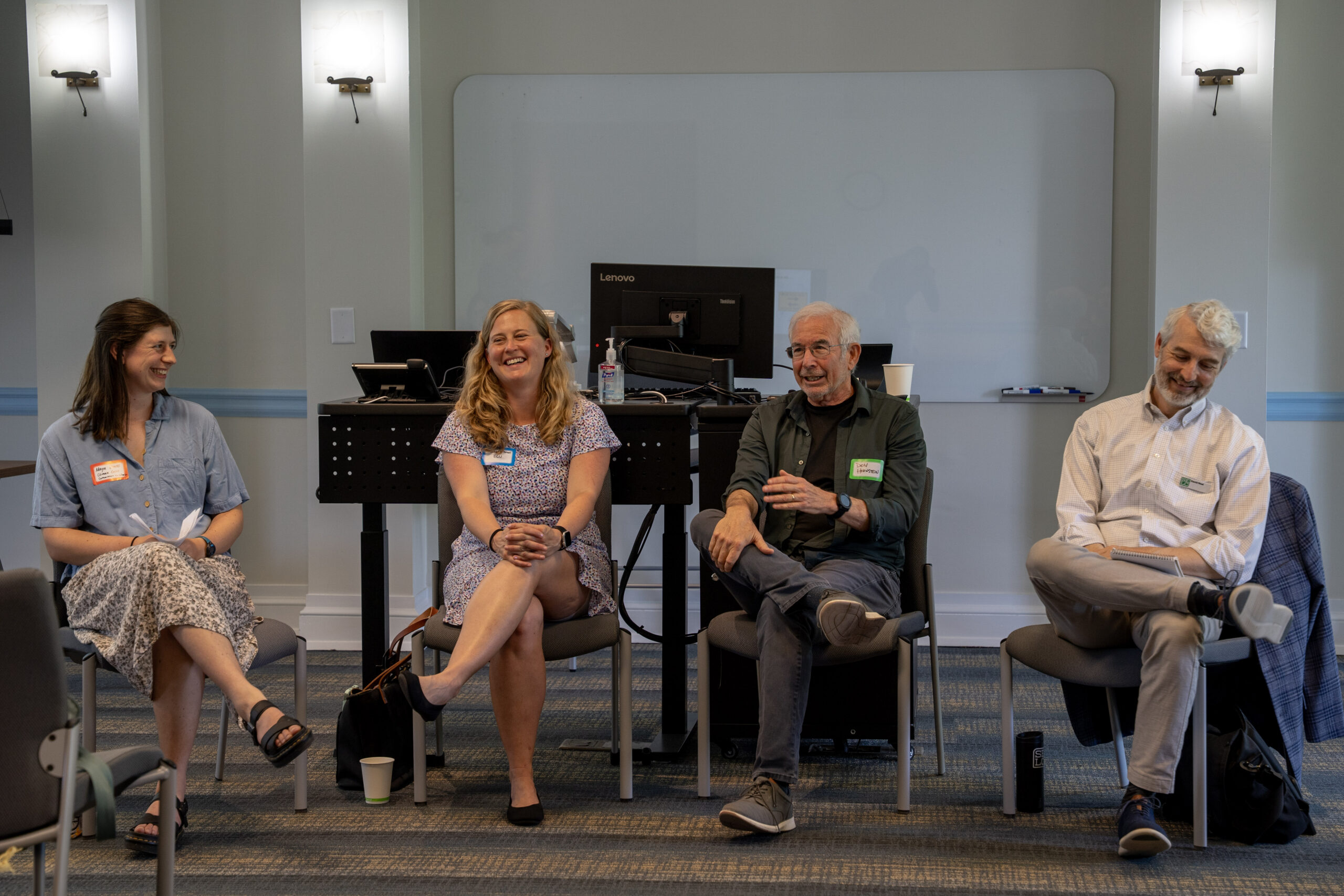
Maya Powell, Dr. Rachel Gittman, Dr. Don Hornstein, and Dr. David Neal lead a panel discussion at UNC’s Climate Change Symposium. (Photo via Reed Fu.)
Katie Joy is one student who attended the symposium, and she said it is important for events like these to exist to first spread information on climate research on a campus filled with student activism, and also discover how people can work together in addressing the crisis.
“I feel like UNC’s in a pretty good position considering we have pretty good funding for research, we have very good professors and involved students, and I really think it’s important that at this event we’re approaching it from multiple areas of study, not just climatology because it is a really big issue we need to cover.”
While acknowledging the anxiety that often accompanies climate change, many speakers emphasized how positive successes in climate research can act as guideposts for moving forward. Powell expressed how those “glimmers of hope” were especially apparent throughout the event, but so was the idea that students in particular are feeling the weight of the climate issue.
Powell added how collaboration is crucial, citing how students are not the ones with most of the financial and institutional power. One way her organization seeks to facilitate that is through an annual petition, urging university administration to expand its climate crisis efforts.
Presented at a Climate Action Day event earlier this month, the petition’s three immediate action items for UNC include ending coal use and achieving carbon neutrality, accelerating the implementation of the climate action plan, and making climate leadership a top priority.
“Our generation, of course, really needs to be these activists and be asking for change,” Powell added. “And it’s really important that we get involved in events like this and come and not only just learn, but network, work with people, and connect with people. But I think there needs to be a response from that older generation.”
Featured image via Charlie Bowers
Chapelboro.com does not charge subscription fees, and you can directly support our efforts in local journalism here. Want more of what you see on Chapelboro? Let us bring free local news and community information to you by signing up for our newsletter.

